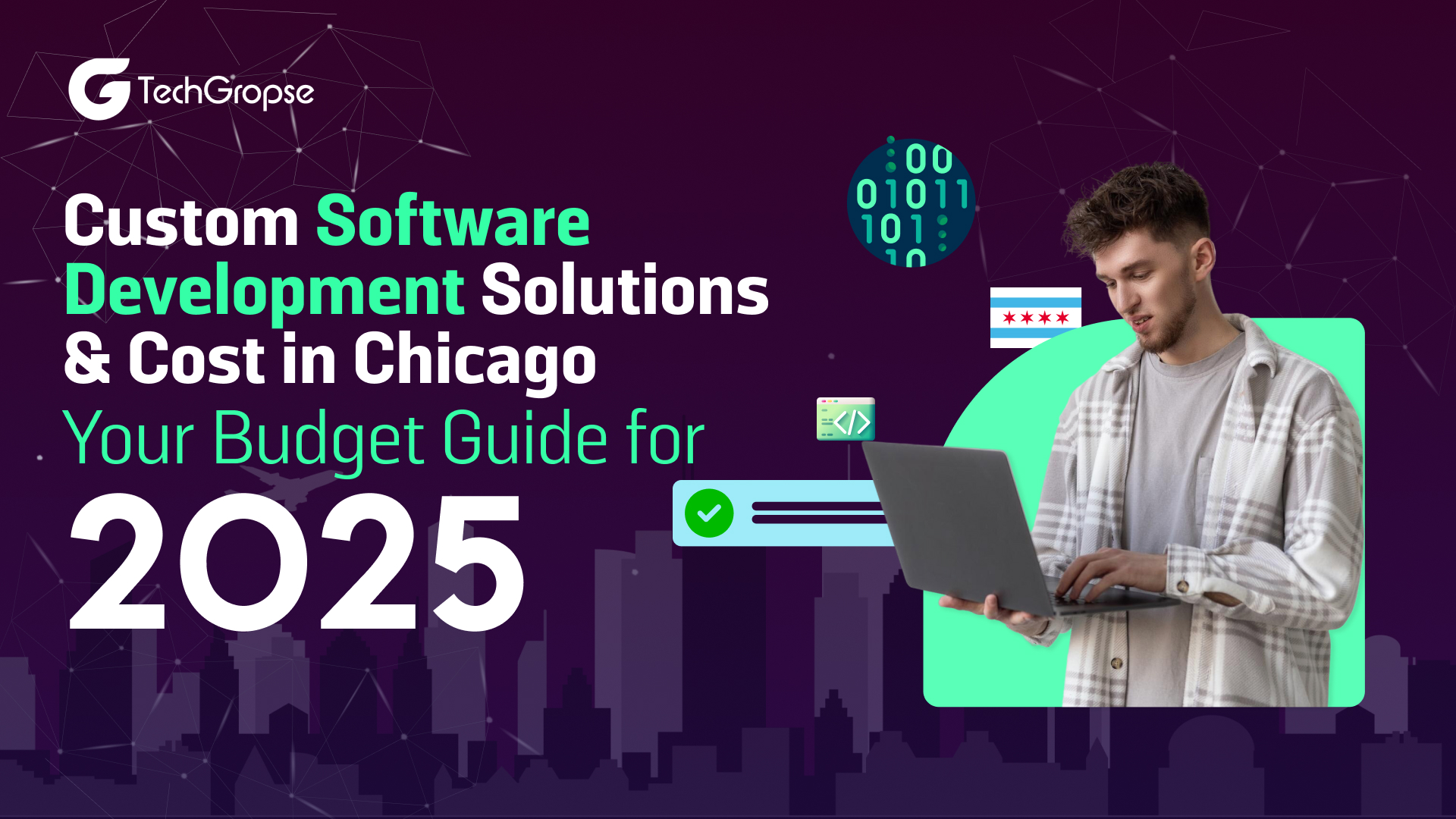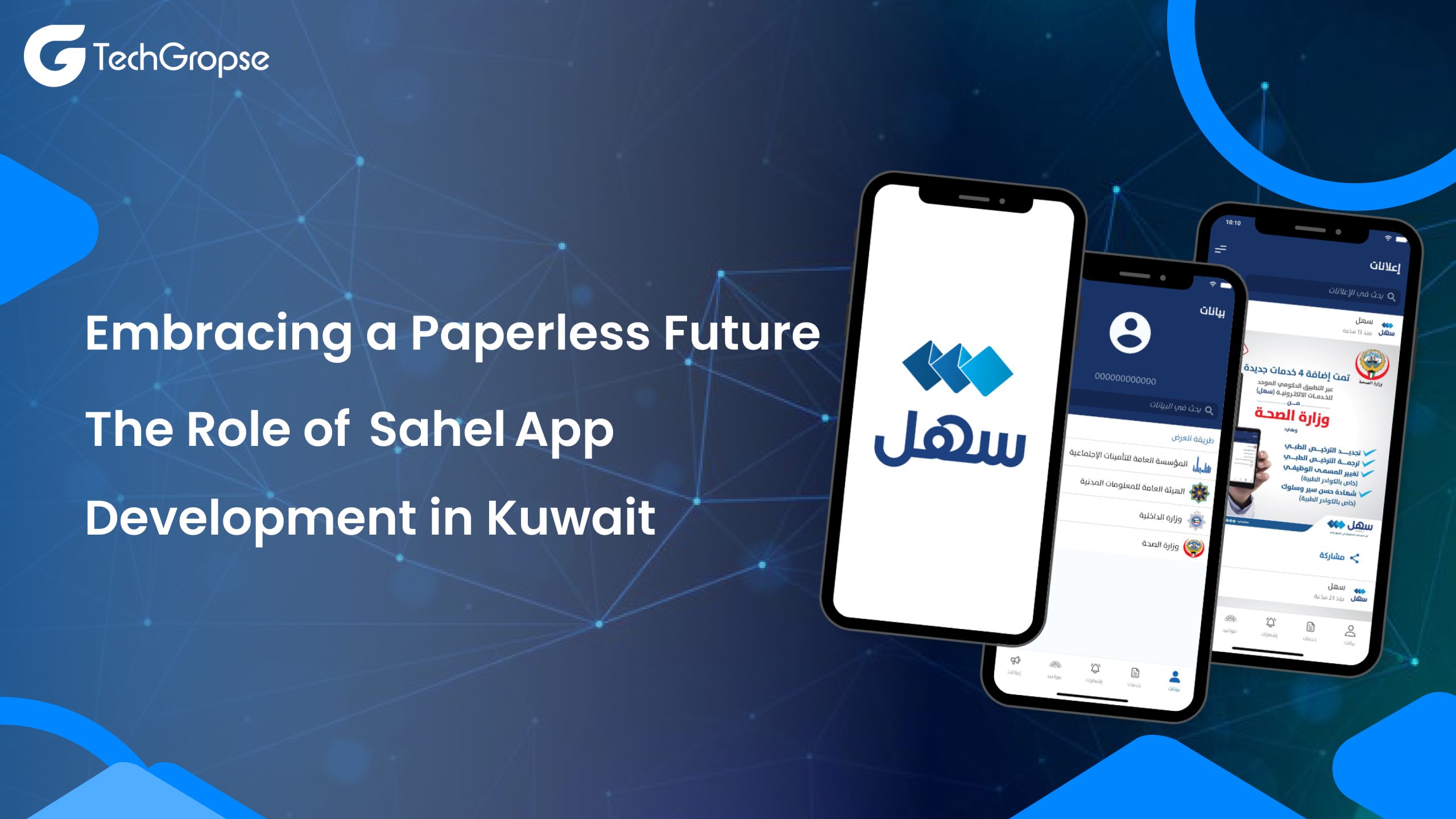Have you ever thought about investing your money in Metaverse in real estate? It’s a pretty good idea, right?
But get this, what if we told you that people are now buying land in a virtual world called the metaverse? Yeah, it sounds good.
Well, The rapid advancement of technology has opened up new possibilities in various industries, and real estate is no exception.
A concept gaining momentum in recent years is the Metaverse, a virtual realm that extends beyond the boundaries of the physical world.
There are investors out there who are spending millions of dollars to own a piece of land in this virtual world.
It all started when Facebook transformed into something called Meta. Since then, the prices of virtual properties have gone through the roof, increasing by a whopping 500%.
Now, you might be wondering, what does the future hold for real estate in the metaverse? Join us as we embark on a journey to understand the impact and future implications of the Metaverse in the real estate industry.
So get ready to dive into the exciting world of virtual real estate.
What is the Metaverse?
Picture this: a virtual world where people can connect, interact, and explore without the limitations of physical boundaries.
“Welcome to the Metaverse, where the ordinary transforms into the extraordinary, and the possibilities are as limitless as the digital horizons.”
That is the metaverse, a concept that has gained traction in recent years. But what exactly is the metaverse? Simply put, it’s a collective virtual shared space that merges the physical and digital realms.
In Metaverse development, users can engage in various activities, create content, and even conduct business transactions.
What is Metaverse Real Estate?
The term “Metaverse Real Estate” refers to the convergence of the digital world, often referred to as the Metaverse, with the traditional real estate industry.
The Metaverse is a collective virtual shared space that is created by the convergence of physical and virtual reality, augmented reality, and the internet.
In the context of real estate, this concept involves the development of immersive and interactive digital environments that showcase properties and create virtual communities.
In simpler terms, Metaverse Real Estate goes beyond conventional property listings and static images.
It involves leveraging advanced technologies like virtual reality (VR) and augmented reality (AR) to provide potential buyers and tenants with a more engaging and dynamic experience.
Instead of merely viewing pictures or taking virtual tours, individuals can immerse themselves in a digital representation of a property, exploring its features and surroundings more interactively.
Did you know that the metaverse real estate market is going to get even bigger? Experts predict that it will grow by a whopping USD 5.37 billion from 2021 to 2026.
It means that the market is going to keep growing at a super fast pace, CAGR of around 61.74% every year. So, get ready for some major changes in the metaverse real estate world!
The Impact of Metaverse on Real Estate
The metaverse has the potential to revolutionize the real estate sector. Imagine the ability to explore properties, attend open houses, and connect with agents and potential buyers, all without stepping foot outside your home.
The metaverse can eliminate geographical limitations and bring the real estate world to your fingertips.
Here’s a simplified overview of the potential impact of the metaverse on real estate:
- Virtual Property Market: The metaverse allows buying, selling, and owning virtual properties, creating a new market for virtual real estate.
- Remote Work Influence: Virtual collaboration in the metaverse might reduce the need for physical office spaces, impacting demand for traditional commercial real estate.
- Virtual Property Tours: Real estate professionals can use the metaverse for virtual property tours, changing the way people explore and decide on real estate.
- Decentralized Workforce Impact: The metaverse might influence where people choose to live if remote work becomes more prevalent, affecting housing demand in different regions.
- Economic Boost: Metaverse development can stimulate economic activity, creating jobs and impacting real estate markets where metaverse-related businesses thrive.
- Mixed-Use Developments: Real estate developers may integrate metaverse elements into projects, creating spaces that combine physical and virtual experiences.
How To Build Real Estate App In The Metaverse?
Building a real estate presence in the metaverse involves several steps, considering the virtual and decentralized nature of these spaces.
Here’s a guide to help you build real estate app:
Step 1: Research and Understand Metaverse Platforms
- Explore different metaverse platforms such as Cryptovoxels, Decentraland, Somnium Space, and others.
- The professional mobile app developers understand the features, user base, and development capabilities of every platform.
Step 2: Select a Metaverse Platform
- Choose a platform that aligns with your objectives and target audience.
- Consider factors like user engagement, development tools, and community support.
Step 3: Learn Development Tools
- Familiarize yourself with the development tools provided by the chosen metaverse platform.
- Platforms often offer SDKs (Software Development Kits) and documentation for creating virtual spaces and assets.
Step 4: Design Virtual Properties
- Plan and design virtual properties that meet the needs of your target audience.
- Consult with a real estate app development company to consider the aesthetics, functionality, and interactivity of your virtual spaces.
Step 5: Implement Smart Contracts and NFTs
- If applicable, explore the integration of smart contracts and NFTs for transparent ownership and unique digital representations.
- Understand the platform’s requirements for implementing blockchain technology.
Step 6: Collaborate with Virtual Architects and Designers
- Consider collaborating with virtual architects and designers to enhance the visual appeal of your virtual properties.
- Leverage the dedicated developers experienced in creating immersive virtual environments.
Step 7: Create a Virtual Office or Showroom
- Establish a virtual presence by creating a virtual office or showroom.
- Showcase your virtual properties, provide information, and engage with users in the metaverse.
Step 8: Host Virtual Events and Tours
- Use the metaverse to host virtual events, webinars, or property tours.
- Engage with potential clients, partners, and the metaverse community.
Step 9. Market Your Virtual Real Estate
- Connect with Metaverse development company to develop a marketing strategy for promoting your virtual real estate.
- Utilize social media, virtual community platforms, and metaverse-specific channels to reach your target audience.
Step 10. Build Community Engagement
- Foster community engagement within the metaverse.
- Encourage users to explore your virtual properties, participate in events, and provide feedback.
Step 11. Stay Informed and Adapt
- Stay informed about updates and trends in the metaverse space.
- Adapt your virtual real estate strategy based on user feedback and evolving technologies.
Step 12: Comply with Regulations
- Be aware of any regulations related to virtual real estate transactions within the Metaverse community development strategies.
- Ensure compliance with existing real estate and financial regulations.
How Real Estate in Metaverse is Different From Conventional Real Estate
Building immersive virtual spaces in real estate differs from conventional real estate in several ways:
- Virtual Nature: Metaverse in real estate is entirely virtual. Properties exist in a digital space and can be bought, sold, and owned, offering a departure from physical, tangible assets.
- No Physical Presence: Virtual properties in the metaverse lack a physical presence in the real world. Unlike conventional real estate, you can’t physically visit or touch these properties.
- Immersive Environments: Virtual real estate provides immersive environments. Users can interact with and experience the space in ways that go beyond the capabilities of traditional real estate, such as hosting virtual events or meetings.
- Programmable Assets: Virtual properties can be programmed with specific features, functionalities, or even dynamic changes. This flexibility is not possible with physical properties in the conventional real estate market.
- Economic Model: The economic model of virtual real estate may differ, involving virtual currencies and transactions within the metaverse. This is a departure from conventional Metaverse in real estate transactions that involve traditional currencies and banking systems.
- Global Accessibility: Virtual real estate in the metaverse is globally accessible. Buyers and users from anywhere in the world can participate, potentially creating a more globalized real estate market compared to the localized nature of traditional real estate.
- Integration of Virtual and Physical Worlds: Some metaverse projects aim to integrate virtual and physical worlds. This may involve linking virtual properties to real-world locations or events, creating a unique hybrid experience.
- Dynamic Environments: Virtual real estate allows for dynamic and customizable environments. Changes and updates can be made without physical construction or renovations, providing a level of flexibility that is not possible in traditional real estate.
What is the Difference Between Virtual and Physical Real Estate Properties
| Aspect | Virtual Real Estate | Physical Real Estate |
| Nature | Exists in a digital, virtual space. | Consists of tangible, physical structures and land. |
| Presence | No physical presence; entirely digital. | Physical structures and land are tangible. |
| Visitability | Virtual properties cannot be physically visited. | Properties can be visited in person. |
| Ownership Records | Recorded on blockchain or similar technology. | Typically relies on centralized documentation. |
| Interactivity | Offers immersive environments and interactions. | Limited to physical use and modifications. |
| Economic Model | Transactions often involve virtual currencies. | Transactions involve traditional currencies. |
| Global Accessibility | Accessible globally without physical constraints. | Localized, often limited to specific geographic areas. |
| Programmability | Properties can be programmed with specific features or changes. | Fixed features, with modifications requiring physical construction. |
| Flexibility | Dynamic and customizable environments. | Changes and updates often require physical renovations. |
| Integration with Reality | May aims to integrate with real-world locations or events. | Physical properties are inherently part of the real world. |
| Ownership Decentralization | Decentralized ownership through blockchain technology. | Centralized ownership records maintained by authorities. |
What is the Biggest Metaverse Real Estate?
It’s essential to note that the metaverse landscape is continually evolving, and new platforms and projects may emerge over time.
Additionally, the concept of “biggest” can be interpreted in various ways, such as the size of the user base, the volume of transactions, or the overall economic activity within a particular metaverse platform.
1. Decentraland
Decentraland is a decentralized virtual world built on the Ethereum blockchain. It allows users to buy, sell, and develop virtual land using the platform’s native cryptocurrency, MANA. Users can create and monetize experiences on their virtual community architecture in real estate.
| Metaverse | Decentraland |
| Founded | 2017 |
| Founders | Esteban Ordano, Ari Meilich |
| Project Lead | Decentraland Community (Via DAO) |
| Platform Main Focus | Gaming |
| Main Graphics Style | Cartoon |
| Decentralized | Yes |
| Virtual Reality | No |
| Buy & Sell Land | Yes |
| Expand Land Offering | No |
| Building Difficulty | Easy (Drag & Drop or Advanced SDK) |
| Mobile Ready Accessible | No |
| Permitted for External Links | Yes |
2. Cryptovoxels
Cryptovoxels is another virtual world that operates on the Ethereum blockchain. It allows users to buy, build, and develop virtual properties in the form of parcels. These parcels can host content ranging from virtual art galleries to interactive experiences.
| Metaverse Platform | Cryptovoxels |
| Founded | 2018 |
| Founders | Ben Nolan |
| Platform Main Focus | Virtual World and Creativity |
| Decentralized | Yes |
| Virtual Reality | Yes |
| Buy & Sell Land | Yes |
| Building Difficulty | Moderate (Block-based building) |
| Mobile Accessibility | Yes |
3. The Sandbox
The Sandbox is a virtual world and gaming platform where users can create, own, and monetize their gaming experiences. It operates on blockchain technology, and users can buy and sell virtual land and assets within the platform.
| Metaverse Platform | Sandbox |
| Founded | 2011 |
| Founders | Arthur Madrid, Sebastien Borget |
| Platform Main Focus | Gaming |
| Decentralized | Yes |
| Virtual Reality | Yes |
| Buy & Sell Land | Yes |
| Building Difficulty | Easy (Drag & Drop) |
| Mobile Accessibility | Yes (3D Web Version) |
4. Somnium Space
Somnium Space is a virtual reality platform that utilizes blockchain technology. Users can buy and sell virtual land and build structures within a persistent, shared virtual space. The platform emphasizes social interaction and user-generated content.
| Metaverse Platform | Somnium Space |
| Founded | 2017 |
| Founder | Artur Sychov |
| Platform Main Focus | Virtual Reality |
| Main Graphics Style | Realism |
| Decentralized | No |
| Buy & Sell Land | Yes |
| Virtual Reality | Yes |
| Expand Land Offering | Yes |
| Building Difficulty | Easy (Drag & Drop) |
| Mobile Accessibility | Yes (3D Web Version) |
| Permitted for External Links | Yes |
5. Roblox
While primarily known as a gaming platform, Roblox has elements of a virtual world where users can create and monetize their experiences. Users can purchase virtual items and spaces, and some dedicated developers have created virtual real estate experiences within the platform.
| Metaverse Platform | Roblox |
| Founded | 2006 |
| Founder | David Baszucki |
| Platform Main Focus | Gaming and User-Created Content |
| Main Graphics Style | Diverse (Depends on User Creations) |
| Decentralized | No |
| Buy & Sell Land | No (Primarily Focus on Games) |
| Virtual Reality | Yes (Supports VR Experiences) |
| Expand Land Offering | N/A |
| Building Difficulty | Easy to Moderate (Depends on User Creation) |
| Mobile Accessibility | Yes (Roblox App) |
| Permitted for External Links | No (Limited to Roblox Ecosystem) |
Also Read: Real Estate App Development Cost in USA
Follow 10 Step to Buy a Metaverse Property
Buying a Metaverse in real estate involves navigating specific platforms and understanding the virtual property ownership model within that metaverse.
Here are general Metaverse real estate community building tips that can guide you through the process:
- Choose a Metaverse Platform: Select a Metaverse platform where you want to buy a virtual property. Examples include Decentraland, Cryptovoxels, The Sandbox, Somnium Space, and others.
- Create an Account: Sign up for an account on the chosen Metaverse platform. Provide the required information to create your user profile.
- Acquire Virtual Currency: Most Metaverse in real estate platforms use their native cryptocurrency for transactions. Acquire the virtual currency accepted on the platform you’ve chosen. Common virtual currencies include MANA for Decentraland and ETH for some Ethereum-based metaverses.
- Explore Available Properties: Navigate the metaverse platform to explore available virtual properties. These properties may vary in size, location, and features.
- Participate in Auctions or Direct Purchases: Virtual properties in some metaverses are sold through auctions or direct purchases. Participate in auctions or use the platform’s marketplace to buy properties.
- Understand Property Details: Review details about the virtual property you are interested in. This may include its location, size, current owner, and any existing structures or features.
- Check Ownership Records: On platforms utilizing blockchain technology, verify the ownership records through smart contracts and NFTs. Ensure that the property’s ownership is transparent and secure.
- Verify Terms and Conditions: Read and understand the terms and conditions associated with buying virtual properties on the Metaverse platform. Be aware of any fees, restrictions, or rules.
- Complete the Purchase: Follow the platform’s process to complete the purchase. This may involve placing bids in an auction, confirming a direct purchase, or utilizing the platform’s marketplace features.
- Transfer Ownership: If the Metaverse in real estate platform uses blockchain and NFTs, the ownership transfer is often handled automatically through smart contracts. Ensure that the ownership transfer is reflected in your account.
What is the Metaverse Development Cost?
| Metaverse Development Complexity | Approximate Cost Range |
| Basic Metaverse Development | $50,000 – $200,000 |
| Moderate Complexity | $200,000 – $1 million |
| Advanced Metaverse Development | $1 million – $10 million+ |
| Blockchain Integration | Additional $50,000 – $500,000 or more |
| Virtual Reality (VR) Development | Additional $20,000 – $200,000 or more |
| Security and Compliance | Additional $10,000 – $100,000 or more |
| Maintenance and Updates | Ongoing costs post-development |
Note: These figures are approximate and can vary significantly based on project specifics, developer rates, technological choices, and other factors. It’s advisable to consult with mobile app development experts and obtain detailed project quotes to get a more accurate estimate for a specific metaverse development project.
Challenges and Considerations: Security, Privacy, and Legal Implications in the Metaverse
As with any digital space, privacy, and data security are significant concerns in the metaverse.
Users must be mindful of the information they share and understand how it may be used by platform operators or third parties.
Metaverse in real estate platforms should prioritize robust security measures and transparent data policies to safeguard users’ personal information and create a trustworthy environment for virtual interactions.
Virtual property rights and ownership are relatively new concepts that require careful consideration in the metaverse.
Establishing clear rules and regulations about virtual property transactions, intellectual property rights, and ownership transfers is crucial.
Legal frameworks need to evolve to safeguard the rights of virtual property owners and guarantee the enforceability of contracts and agreements within virtual spaces.
The Future of Real Estate: Embracing the Metaverse for Sustainable Growth
The Metaverse in real estate presents numerous opportunities for innovation and expansion within the real estate industry.
Brokers and developers can leverage virtual spaces to show architectural designs, provide immersive property tours, and engage potential buyers in ways that were previously unimaginable.
The metaverse allows for experimentation and the creation of unique experiences, enabling real estate professionals to stay ahead of the curve and attract a wider customer base.
By embracing the Metaverse in real estate market becomes more connected and globalized.
Virtual spaces eliminate geographical limitations, enabling investors and buyers from different parts of the world to participate in the same market.
This interconnectedness opens up new avenues for collaboration, knowledge-sharing, and investment diversification.
Additionally, a Metaverse in real estate can promote sustainable growth by encouraging the exploration of virtual solutions and reducing the need for physical construction and travel.
Final Thought
The emergence of the Metaverse in real estate sector presents a plethora of opportunities and challenges.
By embracing this technology, we have the potential to enhance property experiences, foster virtual communities, and create a global real estate market like never before.
However, it is crucial to address security, privacy, and legal considerations to ensure a safe and fair environment within the Metaverse.
As we move forward, industry professionals, policymakers, and technology innovators need to collaborate and navigate these complexities to unlock the full potential of the Metaverse in real estate industry.
The future of Metaverse in real estate lies in embracing this virtual realm and building virtual communities beyond boundaries.
FAQ: Metaverse in Real Estate
1. What is the Metaverse and how does it relate to real estate?
The Metaverse in real estate refers to a virtual realm that extends beyond the physical world, offering immersive experiences and interactions. In the context of Metaverse in real estate can revolutionize property experiences by providing virtual property tours, showrooms, and open houses.
2. How can the Metaverse enhance property experiences?
The Metaverse in real estate can enhance property experiences by offering virtual tours that provide a 360-degree view of properties, allowing potential buyers or renters to explore them remotely. Virtual showrooms enable users to visualize design possibilities and customize spaces virtually.
3. What are the challenges and considerations of the Metaverse in real estate?
While the Metaverse offers exciting possibilities, some challenges and considerations need to be addressed. Ensuring the security and privacy of user data is critical, as well as protecting virtual property rights and ownership.
4. What does the future hold for real estate with the Metaverse?
The future of Metaverse in real estate is promising. Embracing this technology opens up opportunities for innovation and expansion, enabling a connected and global real estate market. As advancements continue, we can expect to see more seamless property transactions, enhanced community-building experiences, and increased accessibility to properties worldwide.

Hello All,
Aman Mishra has years of experience in the IT industry. His passion for helping people in all aspects of mobile app development. Therefore, He write several blogs that help the readers to get the appropriate information about mobile app development trends, technology, and many other aspects.In addition to providing mobile app development services in USA, he also provides maintenance & support services for businesses of all sizes. He tried to solve all their readers’ queries and ensure that the given information would be helpful for them.










